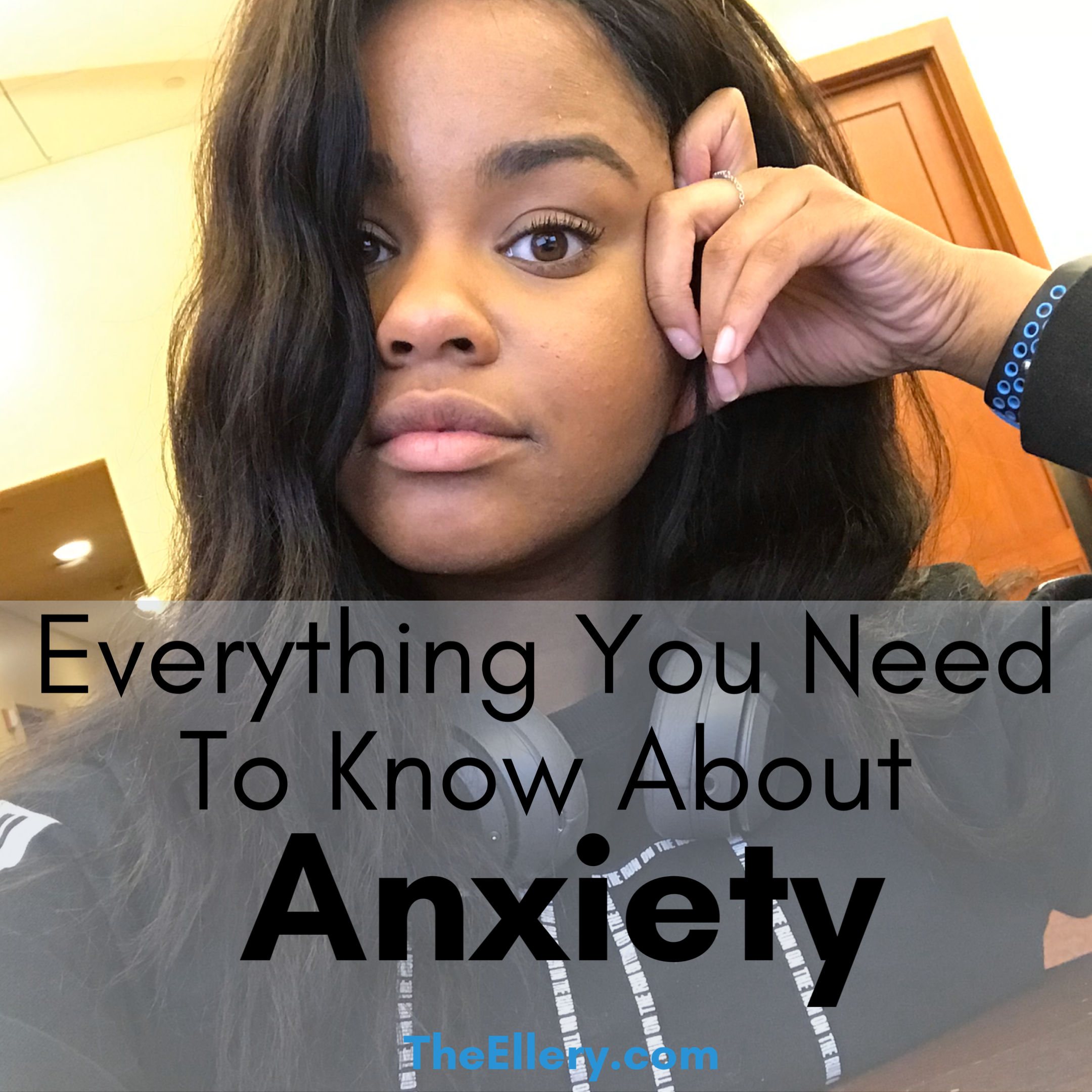Everything You Need to Know About Generalized Anxiety Disorder
Have you ever been so riddled with anxiety that it made you cry? Have you ever worried about something so much that you can’t sleep at night? Have you ever worry so much about something that nothing feels right? Relatable? You might be dealing with anxiety.
So What is It?
The average person will have experienced being very nervous at least once in their life, whether it be public speaking or a high stakes interview. Stress in healthy doses (which is called eustress) is actually beneficial! It can induce peak performance or trigger the fight-or-flight response to get you out of a dangerous situation. But regular everyday responses to stress become an Anxiety Disorder ™ when a person’s feelings of worry and fear are persistent, debilitating, and start to interfere with everyday life. So its more than just feeling nervous. Way more.
What Are the Symptoms?
There are several different disorders that fit under the anxiety umbrella. The five major types are Generalized Anxiety Disorder, Obsessive-Compulsive Disorder, Panic Disorder, Post-Traumatic Stress Disorder and Phobias. Despite being grouped together in the DSM-5, the symptoms for each can really vary so let’s just focus on Generalized Anxiety Disorder, or GAD, for now. What sets Generalized Anxiety apart from the others is, you guessed it, a general feeling of anxiety. It’s not tied to any particular situation, it’s just all anxiety, all the time. People with GAD can’t stand uncertainty, will find a way to worry about everything but also nothing, feel like they don’t have the power to solve their problems, and will avoid anything that’s anxiety-inducing like the plague. In addition to the restlessness, panic, hyperventilation or heavy sweating that most people understand as symptoms of anxiousness, there are negative thought patterns that are classic GAD as well. Do you always expect the worst case scenario? Do you feel like you don’t control the outcomes in your life? Are you constantly focusing on the bad and ignoring the good? Are you an all or nothing, good or bad, black or white with no room for gray areas kind of person? Do you tag things as good or bad, black or white, with no room for shades of gray in the middle? These are called cognitive distortions and can make benign or even joyous situations seem daunting.
Who Has It?
40 million American adults have anxiety disorder, making it the most prevalent mental illnesses in the US. There are literally more American adults with anxiety than people in Iraq. Worldwide, there are 284 million people experiencing an anxiety disorder, and of all of these clinically nervous people, they tend to be younger (18-29) and female (63% globally) . And let’s not forget about the kids. 3.3% of adolescents have GAD, because honestly what’s more terrifying than having to decide what to do with the rest of your life before you even figure out who you really are as a person.
Why does it happen ?
Like most mental illnesses, there’s a genetic link to Generalized Anxiety. That means if someone you’re related to has it, you’re more likely to have it than the average person. In addition to genes, you can also internalize anxious thought patterns and habits from the people you spend the most time with. If your caretakers are constantly telling you that the world is full of things to be afraid of, you’re likely going to get to the over-worrying sooner or later. But don’t blame it all on your parents just yet: personality types , stressful living conditions, and childhood trauma can all increase your risk of having GAD. Yes, there are certain personalities that are more likely to develop anxiety than others. So maybe you’re born with it. Maybe you grew into it. Maybe its Maybelline.
What does it feel like
Feeling nervous, rapid breathing, racing heart, sweating, and trembling are the symptoms most commonly associated with anxiety. But did you know that it can cause problems with your sleep, concentration, and your GI tract? You may also notice that you’re feeling weak or tired. When you’re constantly on high alert, your body is going to get tired, weak, and vulnerable so you may find it hard to concentrate or that you’re getting sick more often. My favorite symptom has to be the constant sense of impending doom. It’s not my favorite because its fun (it sucks) but it’s the symptom the one symptom I couldn’t brush away as normal or situational. It’s the intrusive feeling that something somewhere is about to go really wrong. And what if you can’t put your finger on what’s actually wrong? Don’t you worry, your brain may start to ruminate ( constantly rethink something without coming to an ultimate solution or conclusion) to try (and fail) to figure out why.
What Do I Do About it?
There is no ‘cure’ for anxiety, but there are steps you can take to manage your symptoms or even make your symptoms disappear entirely! Self-care is key when you have anxiety, because being stressed about one thing makes it easy to stress about another until you spiral into an anxious mess. The kinder you are to your body-sleeping enough, eating well, exercising-the less likely it is to flip out and think that you’re in danger all the time. If you’re not seeing enough of a change when you’re treating your body well, and your anxiety keeps making it hard to live your life, try talking to a therapist. Anxiety can become so ingrained in your life that you may not see how harmful some thoughts can be. Cognitive Behavioral Therapy or CBT gives you the tools to not only spot these these impractical and unhelpful thought patterns but challenge them and replace them with new, healthier ones.
This is totally not how this works obvs but can you imagine? Dogs are SO chill
Anything else?
Anxiety symptoms can sometimes appear to be personality traits. Turns out perfectionism, shyness, people-pleasing, and procrastination may not be just who you are, they could just be consequences of unchecked anxiety. So what may seem like high standards and a rigid work ethic to others may actually be the result of an all or nothing cognitive distortion (if I’m not perfect, then I’m a failure). And coming from a recovering perfectionist, that kind of thinking gets real old, real quick. But all is not lost! Taking the time to notice and unpack your anxious thoughts is a small but significant way to take back the reigns from your anxiety. Next time you’re overwhelmed with anxious feelings, pick one, put it in the seat and cross examine it like the lawyer your parents wanted you to be. Challenge the thoughts that you’ve been letting run rampant in your head. Don’t just take them at face value, tell your anxiety to bring the evidence. Are the thoughts based in facts or feelings? Are the positives and negatives aspects being weighed equally? Case in point: if Anxiety Brain ™ is telling you that you won’t get into grad school because you failed a class and don’t have a perfect GRE, tell GAD to come with receipts. While you may feel like your transcript has to be perfect to get into grad school, if you ask the experts, neither GRE scores OR grade point averages are correlated with success in graduate school. And because of this, more and more schools are doing away with it as an application requirement. Boom. Roasted. Anxiety’s argument is weak and won’t stand up in court. Rinse and repeat. Does danger still exist? Yes. Are there still valid things to worry about? Also yes. But excessive worrying doesn’t have the power to help or change anything so don’t give it the power to ruin your life.












